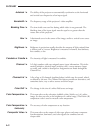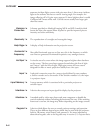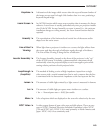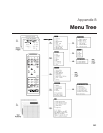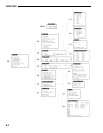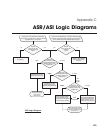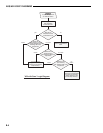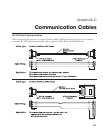
GLOSSARY
A.8
Sync ➤ This term refers to the part of the video signal that is used to stabilize the
picture. Sync can take three forms:
1) "Composite sync" when the horizontal and vertical components are
together on one cable.
2) "Sync on green" when the sync is part of the green video.
3) "Separate sync" or "H.SYNC and V.SYNC" when the horizontal and
vertical components of the sync are on two separate cables.
Sync Width ➤ The duration of each sync pulse generated by a computer. The sync width is
part of the blanking time.
TTL Video ➤ A type of RGB video with digital characteristics.
Terminated ➤ A wire connecting a single video source to a display device, such as a projector,
must be terminated by a resistance (usually 75Ω for video).
Throw Distance ➤ Also called "Projector-to-Screen Distance", the distance between the front of
the projector's green lens and the screen.
Variable Scan ➤ The ability of a projector to synchronize to inputs with frequencies within a
specified range.
Vertical Frequency ➤ The frequency at which images are generated. Vertical frequencies vary
amongst sources. This term is also called vertical scan rate.
Video ➤ The signal that is used by display devices (such as projectors) to generate
a picture. This term also refers to the output of video tape/disk players
and computers.





